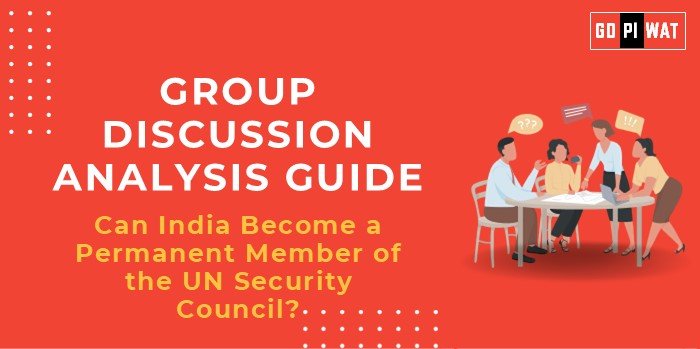📋 Can India Become a Permanent Member of the UN Security Council?
🌐 Introduction to the Topic
- 💡 Opening Context: “The United Nations Security Council (UNSC) represents global governance, with its permanent members holding veto power that significantly influences international policy.”
- 🌍 Topic Background: Established in 1945, the UNSC has five permanent members (P5): the US, UK, France, Russia, and China. India, as one of the largest democracies with a burgeoning economy, has long lobbied for a permanent seat to better represent global South interests.
📊 Quick Facts and Key Statistics
- 👮♂️ India’s Contributions to UN Peacekeeping: Over 2,50,000 personnel contributed since inception, the highest by any country.
- 📈 Global Economy Rank: 5th largest economy (2024), showcasing economic strength.
- 🌏 Population: 1.4 billion+ (largest globally), underscoring significant global representation.
- 💰 UN Budget Contribution: Among the top 10 contributors to the UN General Budget (2023).
- 🤝 Diplomatic Engagement: Member of G20, BRICS, and Quad, demonstrating global leadership.
👥 Stakeholders and Their Roles
- 🇮🇳 Indian Government: Advocates for permanent membership citing democratic values and peacekeeping efforts.
- 🌐 UNSC Permanent Members: Have the power to reform the UNSC but show varied stances on expansion.
- 📊 Emerging Economies (BRICS): Support India’s bid for broader representation.
- ⚖️ Opposition Countries: Some neighbors and P5 members may resist due to geopolitical interests.
- 💡 Civil Society and Think Tanks: Push for democratic reforms in global governance.
🏆 Achievements and ⚠️ Challenges
Achievements
- 🌞 Leadership in Climate Diplomacy: Initiatives like the International Solar Alliance.
- 🛡️ Proven Peacekeeping Leadership: Effective operations in African and conflict-ridden nations.
- 📈 Economic Contributions: Boosting global soft power through culture and technology.
Challenges
- 🚫 Opposition from China: Geopolitical tensions hinder support.
- ⚖️ Lack of G4 Consensus: Coordination issues among India, Brazil, Germany, and Japan.
- ⚔️ Regional Conflicts: Relations with Pakistan add complexity to India’s candidacy.
🌏 Global Comparisons
- 🇯🇵 Japan: Economic leader but faces similar challenges for permanent UNSC membership.
- 🇧🇷 Brazil: Another contender with regional influence but less global reach.
📖 Case Studies
India’s Peacekeeping in Congo: Demonstrated effective troop deployment and community rebuilding.
Climate Action Leadership: Played a pivotal role in COP26 commitments and renewable energy transitions.
💬 Structured Arguments for Discussion
- Supporting Stance: “India’s economic and diplomatic stature makes it a deserving candidate for permanent membership, ensuring balanced representation for developing countries.”
- Opposing Stance: “Regional conflicts and lack of P5 consensus hinder India’s eligibility for UNSC permanent membership.”
- Balanced Perspective: “India’s leadership in peacekeeping and global diplomacy is commendable, but regional and structural hurdles need resolution.”
🛠️ Effective Discussion Approaches
Opening Approaches
- 👮♂️ Start with Peacekeeping Contributions: Highlight India’s extensive involvement and its significance.
- ⚖️ Emphasize Inequity: Point out underrepresentation of developing nations in the current UNSC structure.
Counter-Argument Handling
- 💡 Acknowledge regional tensions but highlight India’s proactive conflict resolution efforts.
- 📢 Argue the inefficiency of the current UNSC structure in addressing contemporary global challenges.
📌 Strategic Analysis of Strengths and Weaknesses
Strengths
- 🌍 Largest democracy with strong global representation.
- 🤝 Leadership in peacekeeping and G20 presidency.
Weaknesses
- ⚔️ Regional disputes reducing consensus.
- ❌ Lack of strong P5 allies for reform efforts.
Opportunities
- 🌟 Strengthen global governance by representing the Global South.
- 🤝 Align closely with G4 to push for reforms.
- 📢 Focus on multipolar diplomacy to win broad-based support.
Threats
- 🚫 Opposition from powerful nations like China.
- ⏳ Reforms stalling due to the P5 veto mechanism.
🎓 Connecting with B-School Applications
- Real-World Applications:
- 📚 Explore UNSC reforms as a case study in negotiation and governance.
- 🌐 Analyze India’s diplomacy for lessons in coalition-building and leadership.
- Sample Interview Questions:
- 🤔 “What are the challenges India faces in securing a UNSC permanent seat?”
- 💡 “How does India’s peacekeeping history support its UNSC bid?”
- Insights for B-School Students:
- 📈 Develop geopolitical awareness for effective global leadership.
- 🤝 Learn the art of negotiation and coalition-building in complex systems.
- 🌍 Understand the intersection of global governance and economic policy.


